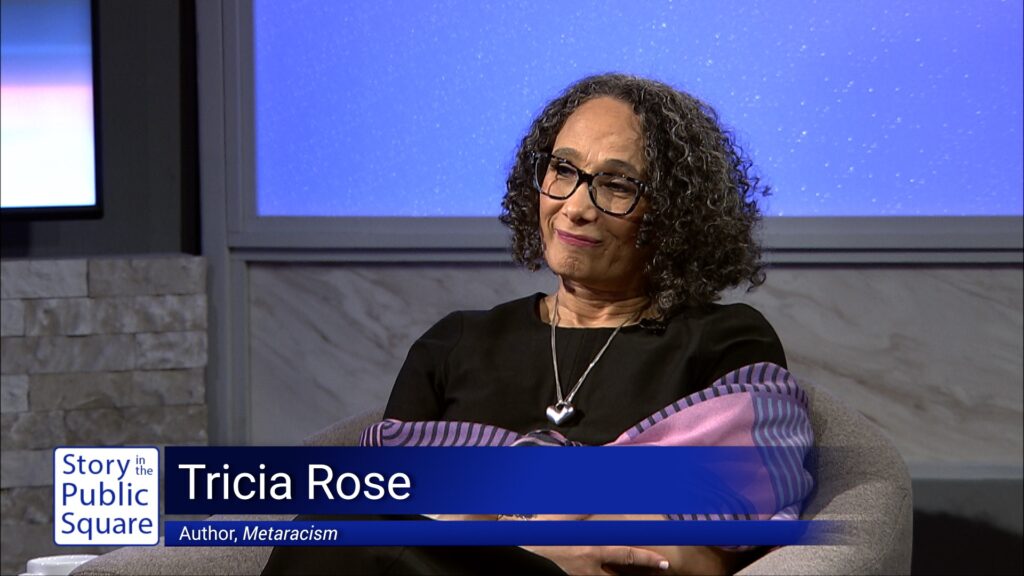Tricia Rose on Breaking Free from Systemic Racism
Air Dates: May 27-June 2, 2024
Racism is often described as an individual failing, but Dr. Tricia Rose explains that racism is better understood as the result of a system built over generations and even centuries—and perpetuated by the stories we tell about it today.
Rose is the Chancellor’s Professor of Africana Studies and Associate Dean of the Faculty for Special Initiatives, Director of the Center for the Study of Race and Ethnicity in America. She studies African American life, culture, and the impact of inequality, in the post-civil rights era. She specializes in the ways contemporary forms of systemic racism are blurred and hidden in our everyday storytelling about racism and the important role African-American expressive culture plays in creating spaces of recognition, resilience, and resistance. She is the author of four books and one edited collection on subjects ranging from her most recent work on systemic racism to her earlier award-winning work on hip hop, black women’s sexuality, and black popular culture. They include, “Black Noise: Rap Music and Black Culture in Contemporary America,” “Longing to Tell: Black Women Talk About Sexuality and Intimacy” and “The Hip Hop Wars: What We Talk About When We Talk About Hip Hop and Why It Matters.” Her latest, published this year, is “Metaracism: How Systemic Racism Devastates Black Lives―and How We Break Free.”
On this episode of “Story in the Public Square,” Rose distinguishes between structures versus systems and the ways discrimination manfifests itself in each. Within a structure, any kind of discrimination can be “built into the operations” somewhere within that structure. Within a system, interconnections between the various elements in the system produce effects that are more powerful and impactful than any one part of the system could achieve on its own. She said, “these things are connected, they’re not just individual acts by people and they’re not just random, renegade, individual racists running an institution, but that the system is designed to produce these outcomes.” Rose added, “I actually believe that my argument invites every group of people into the conversation because I’m not blaming individuals, [rather,] we have to think differently about this, we have to think collectively, but we also have to be honest and we have to do some hard work.”
“Story in the Public Square” broadcasts each week on public television stations across the United States. A full listing of the national television distribution is available at this link. In Rhode Island and southeastern New England, the show is broadcast on Rhode Island PBS on Sundays at 11:00 a.m. and is rebroadcast Thursdays at 7:30 p.m. An audio version of the program airs Saturdays at 8:30 a.m. and 7:30 p.m. ET, Sundays at 5:00 a.m. and 10:00 p.m. and Mondays at 2:30 a.m. ET on SiriusXM’s popular P.O.T.U.S. (Politics of the United States), channel 124. “Story in the Public Square” is a project of the Pell Center at Salve Regina University. The initiative aims to study, celebrate and tell stories that matter.

